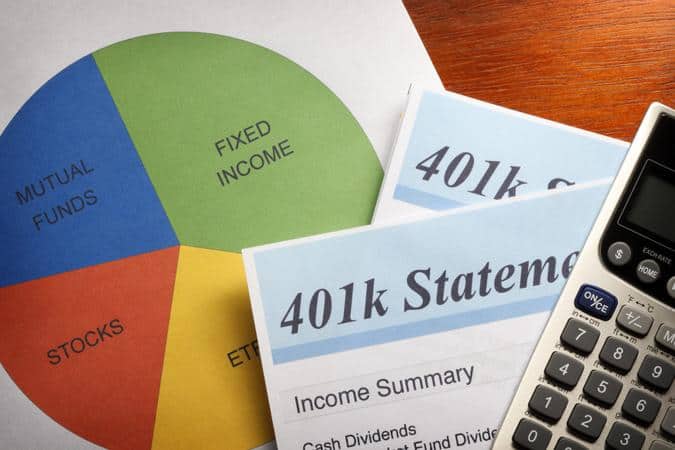
The dream of retirement is eternal, but the expectations of post-career life as a senior in America have evolved since the time of the gold watch and the employee pension. The pandemic has forced changes that will alter the concept of retirement in the future — and that evolution is already taking place.
The Great Resignation, two years of stimulus payments and a national resetting of personal and professional priorities have shifted the future retirement landscape. What retirement will look like for the young and middle-aged of today is yet to be seen, but one thing is certain: The lessons of the past won’t always apply.
In the Future, Retirement Will Start Later and Last Longer
Those who are still decades away from retirement — millennials and Gen Zers — should not expect to cartwheel out of their cubicles for the last time at the same age that their parents punched the clock at the end of their final shifts.
“It is likely retirement will happen later,” said Chris Kampitsis, CFP, a securities and investment advisor with the SKG Team at Barnum Financial Group. “67 is in many ways the new 65 — and that may be 70 by the time they retire.”
Despite the delay, today’s young people should expect to enjoy — and plan to fund — a much longer walk into the sunset.
“Life expectancy is anticipated to continue to advance with technology and health care innovations,” Kampitsis said. “So what was once a 20-year retirement may be a 30-year retirement, despite retiring a few years later.”
That’s an extra decade of post-work life that needs financing, but those who are prepared will enjoy something that was rarely part of “traditional retirement” until recently: the modern miracle of good health in advanced age.
“They should also anticipate being able to have more fun and be more vital for longer than previous generations were able to be,” Kampitsis said. “The length of quality life should increase as well, thankfully.”
In Terms of Income, the Future Might Look a Lot Like the Past
GOBankingRates spoke to several experts who predicted a shift back to something resembling the old pension model as people seek out sources of guaranteed income to fund extended retirements and longer lives. 401(k)s, after all, are guaranteed not to run out only until they run out.
“With increased longevity, guaranteed income that cannot deplete may be actuarially much more necessary in retirement,” Kampitsis said.
That presents a unique opportunity for a much-maligned and often misunderstood class of investments to come roaring back into vogue.
“Millennials and Gen Zers should not be surprised if their perspective on annuities changes a great deal from the current common media perception towards these guaranteed income streams,” Kampitsis said. “With recent law changes, annuities will become common offerings inside of 401(k) plans. This may lead to a greater understanding and acceptance of the benefits of lifetime income.”
They’ll need something. With pensions all but extinct, the only real guarantee for most retirees is Social Security — but that program is on a collision course with painful economic and demographic realities.
“The youngest members of the workforce should plan for a change in Social Security,” Kampitsis said. “While it won’t disappear, in all likelihood it is fair to say that it will change in some form or fashion. Whether that means it can be turned on later, the benefit is reduced or taxation is increased, those with time to plan should look at Social Security as icing on the cake rather than a core part of their future retirement income.”
A New Retirement Movement Will Prioritize Health Over Wealth
Another trend that’s already emerging can be credited directly to the pandemic: People retiring while they still have their health at the expense of their lifestyles and future security.
“The last two years have put people in a new mindset for what they want for their future,” said Michael Clark, a retirement expert with River and Mercantile. “Many people who were 10-plus years away from a traditional age 65 retirement are now looking at how they can phase out of the workforce with a longer runway. That means looking at their needs and wants and deciding to scale back to 80% to 90% as early as their mid-50s. I think we’ll see that trend continue as people place value on being able to enjoy their life now while their health is good and they are financially able, as opposed to waiting until later when there might be a lot more unknowns — health being the biggest unknown for many people.”
Extended Retirement Might Demand Perpetual Part-Time Work
Young people who grew up in the age of rideshare drivers and Etsy stores will carry the mindset of side-hustle culture for the rest of their lives into retirement — and that mindset is brand new in American history.
“Past generations have always been either working or retired, with no middle ground,” said Charles H. Thomas III, CFP, financial advisor and founder of Intrepid Eagle Finance. “Future generations will have a spectrum to choose from. For example, if someone decides they want more time, then options like gig work, consulting and more will mean their lifestyle can scale as they see fit.”
In this new retirement landscape, people will transition into and out of gig work as they choose or as they must while moving through a retirement that — like their whole lives before, in many cases — is defined by on-again-off-again side hustles.





























